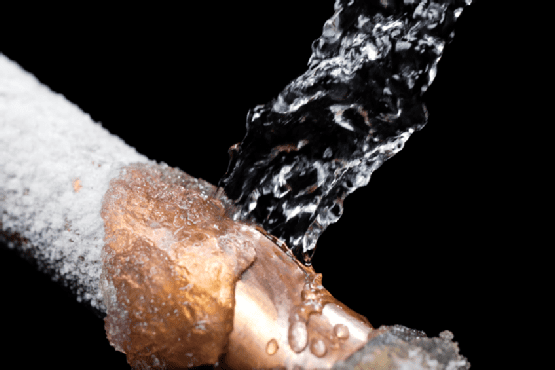Winter has a harsh effect on your pipes and can do a lot of serious damage if you and your plumber don’t prepare. This article will tell you how cold weather can affect your pipes, what to do if your pipes have already frozen, and how you and your plumber can prevent it from happening in the future.
Burst Pipes
When water freezes, it expands. That’s why, when a pipe freezes, it is likely to burst. Technically, this is because of the increase in water pressure following an ice blockage in a pipe. Once a pipe bursts, water can escape, which can damage your carpet, walls, furniture, electrical wiring, and floor joints, and can cause the growth of mold and mildew. Pipes that are exposed to more cold air—namely, pipes in attics or pipes located outside of your home—are of particular concern during winter.
What You Can Do
If you turn on your faucet and no water comes out, don’t take any chances—call a plumber immediately. If a pipe bursts, turn off your main water valve, which is usually at the water meter where the main water line enters the house. Once the main water valve is shut off, be sure to keep your faucets open until the plumber has completed repairs.
In order to avoid this problem over the winter, talk to your plumber early on in the cool season. Especially if you are planning on going out of town during the winter, it’s essential that you and your plumber prepare your pipes for cold weather. The most important thing to do is to shut off the main valve and drain all of the water from the system by opening up all of the faucets. A plumber can also add insulation or even relocate your pipes if necessary.
Preventative plumbing this winter could save you thousands of dollars in water damage repairs. For expert plumbing services in the Chicago area, call Bishop Plumbing.

